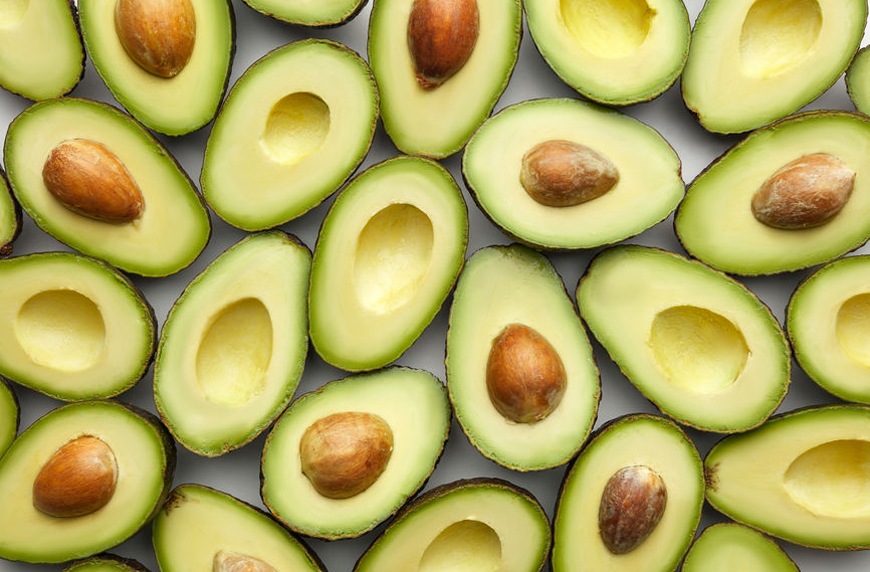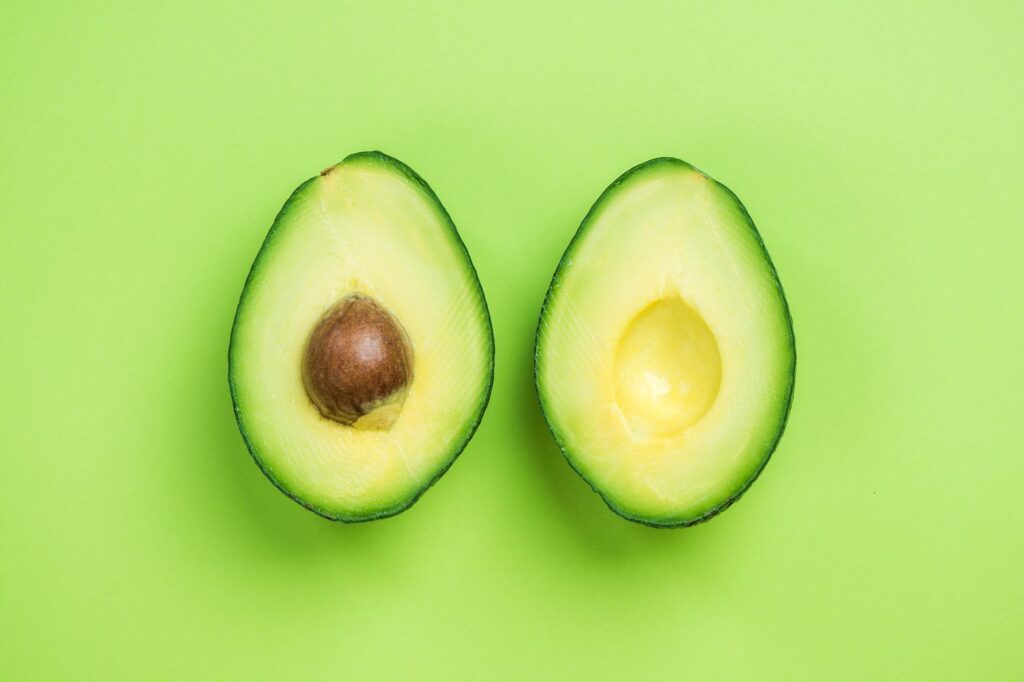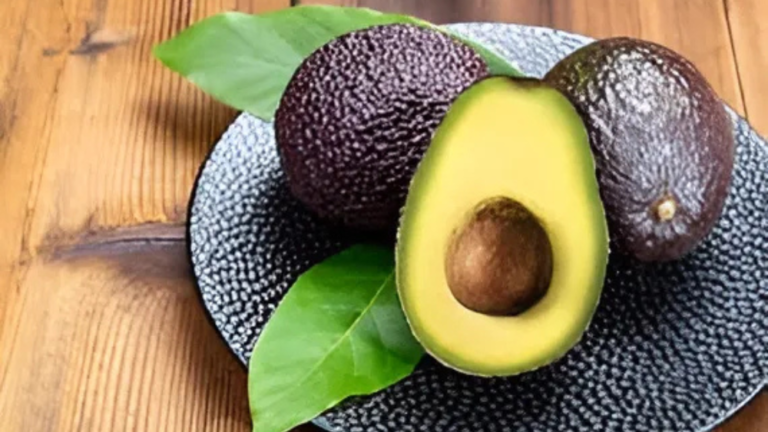Avocado: What is Avocado, Advantages, Diet Plan, Calories, and More
Discover how avocados, a nutrient-dense fruit packed with healthy fats, can support healthy weight gain. Learn about the benefits of avocado for building muscle, adding calories, and incorporating this superfood into your diet for fat gain in a balanced way.
Introduction
Avocados are one of those foods that have risen to “superfood” status in recent years. With their creamy texture, versatile use, and impressive nutritional profile, it’s no wonder they’ve become a staple in modern diets. From avocado toast to guacamole, this fruit has earned its place in kitchens around the world. But there’s so much more to avocados than just their trendy status—let’s explore what they are, the health benefits they offer, how to incorporate them into your diet, and whether they can help you gain or burn calories.
What is Avocado?
Origin and History of Avocado
Avocados, scientifically known as Persea americana, are native to south-central Mexico. They have been around for thousands of years, with evidence suggesting the Aztecs and ancient Mesoamerican cultures were among the first to cultivate and consume them. Back then, they were seen as a symbol of fertility, likely due to their rich and nutrient-packed flesh.
While avocados have been enjoyed for millennia, they didn’t gain global popularity until the 20th century. Today, you’ll find avocados all over the world, from the U.S. and Europe to Asia and beyond. It’s no surprise, considering their delicious taste and countless health benefits.
Nutritional Profile of Avocado
One of the things that sets avocado apart from other fruits is its remarkable nutritional profile. Unlike most fruits, which are high in carbohydrates and sugar, avocados are packed with healthy fats, especially monounsaturated fat, which is great for heart health. Here’s a quick snapshot of what you can expect in one medium-sized avocado:
- Calories: 240–320 (depending on size)
- Fat: 22 grams (of which 15 grams are monounsaturated)
- Fiber: 10 grams
- Potassium: 975 mg (more than a banana!)
- Vitamins: Vitamin K, Vitamin E, Vitamin C, B-Vitamins (B5, B6, Folate)
Avocados also contain a wealth of antioxidants and plant compounds that are beneficial for overall health.

What Are the Advantages of Avocado? [1]
Rich in Healthy Fats
Avocados are known for their high fat content, but it’s important to note that most of this fat comes from monounsaturated fat. This type of fat is considered heart-healthy, as it helps lower bad cholesterol levels (LDL) while raising good cholesterol (HDL). Including avocados in your diet can improve your lipid profile and reduce the risk of heart disease.
Packed with Nutrients
Aside from healthy fats, avocados are loaded with other essential nutrients. For example, they are a rich source of potassium, which helps regulate blood pressure. Avocados also contain magnesium, which supports muscle and nerve function, and fiber, which is great for digestion. With a variety of vitamins and minerals, avocados help cover a lot of nutritional bases.
Supports Heart Health
Avocados have earned a reputation for supporting cardiovascular health. The combination of monounsaturated fats, fiber, and antioxidants found in avocados works together to lower cholesterol and improve blood circulation. Studies have shown that eating avocados regularly can help reduce the risk of heart disease by keeping cholesterol levels in check.
Aids in Digestion
One of the most underrated benefits of avocados is their ability to support digestion. They’re high in fiber, with a single avocado providing about 10 grams—roughly 40% of the daily recommended intake. This fiber helps maintain regular bowel movements, prevent constipation, and foster a healthy gut microbiome. Moreover, fiber aids in the absorption of important nutrients, ensuring your body gets the most out of your meals.
Boosts Skin Health
Want better skin? Look no further than the avocado. This fruit is rich in vitamin E, an antioxidant that helps protect skin cells from damage caused by free radicals and UV rays. The healthy fats in avocados also keep your skin hydrated and improve elasticity. Whether you eat it or use it in a homemade mask, avocados can contribute to a healthier complexion.
Avocado in a Diet Plan
How to Incorporate Avocado in Your Meals
Avocados are incredibly versatile, so adding them to your diet is a breeze. Here are a few simple ideas for incorporating this nutrient-packed fruit into your meals:
- Avocado Toast: A classic! Just mash up half an avocado and spread it over toasted whole-grain bread. Add salt, pepper, and perhaps a poached egg on top for a boost of protein.
- Smoothies: For a creamy, nutrient-packed smoothie, blend avocado with fruits like banana, berries, and spinach. It makes the drink smoother and adds healthy fats that keep you feeling full.
- Salads: Dice up some avocado and toss it into salads for a creamy texture. It pairs well with leafy greens, tomatoes, and citrus.
- Guacamole: The classic dip! Mash avocado with lime, cilantro, onion, and garlic for a delicious guacamole that’s perfect for snacks or parties.
Healthy Avocado-Based Recipes
Avocado Toast
Avocado toast has become a go-to breakfast for many, and for good reason. It’s quick, nutritious, and customizable. Start with a slice of whole-grain or sourdough bread. Spread mashed avocado on top and season with salt, pepper, and red pepper flakes. For added protein, top with a poached or fried egg!
Avocado Smoothie
Blend one ripe avocado with almond milk, spinach, a banana, and some honey for a smooth, creamy, and nutrient-dense drink. This smoothie is perfect for breakfast or a post-workout snack. You’ll get healthy fats, fiber, and a nice dose of vitamins.

Avocado Calories: Gain or Burn?
Caloric Content of Avocado
Avocados are relatively high in calories compared to most fruits, containing anywhere from 240 to 320 calories per medium-sized fruit. However, the calories come from healthy fats and fiber, both of which provide lasting energy. The fats in avocados are beneficial to your body, unlike the empty calories from processed foods.
Avocados and Weight Loss
While it may seem counterintuitive, avocados can actually be a great food for weight loss. Their high fiber content helps control hunger and keeps you full for longer, reducing the urge to snack between meals. Plus, the monounsaturated fats help stabilize blood sugar levels, preventing the energy crashes that often lead to overeating. Just be mindful of portion sizes, as they are calorie-dense.
Avocados and Weight Gain
For those looking to gain weight in a healthy way, avocados can be a great addition to your diet. They provide a nutrient-dense source of calories, which is essential for building muscle and adding healthy mass. Pairing avocado with other calorie-dense, nutrient-rich foods—like nuts, seeds, and lean proteins—can help you meet your calorie goals without relying on processed junk food.
Conclusion
Without a doubt, avocados are one of the healthiest foods you can include in your diet. Packed with heart-healthy fats, fiber, vitamins, and minerals, avocados offer a wide range of health benefits. From improving digestion to supporting heart health and even giving your skin a natural glow, there’s no shortage of reasons to make avocado a regular part of your meals. Whether you’re looking to lose weight, gain muscle, or simply improve your overall health, avocados are a delicious and nutritious addition to your daily routine. So next time you’re in the grocery store, pick up a ripe avocado and start experimenting with this superfood. Your body will thank you for it!
Frequently Asked Questions About Avocados
What is an avocado?
An avocado is a creamy, nutrient-dense fruit that grows on the Persea americana tree, native to Central and South America. It’s known for its smooth texture and rich, buttery flavor.
Are avocados a fruit or a vegetable?
Avocados are technically a fruit, specifically a large berry with a single seed. Despite their savory taste, they fall under the fruit category because they develop from the flower of the avocado tree.
How many types of avocados are there?
There are many varieties of avocados, with the most popular being the Hass avocado. Other types include Fuerte, Bacon, and Zutano. Hass avocados are known for their rich flavor and bumpy, dark skin.
What are the health benefits of eating avocados?
Avocados offer numerous health benefits, such as improving heart health, supporting digestion, enhancing skin health, and aiding in weight management due to their healthy fats and fiber content.
Are avocados good for weight loss?
Yes! Despite their high-calorie content, avocados are rich in fiber and healthy fats, which help control appetite and keep you full for longer, making them a great addition to a weight loss diet when consumed in moderation.
How many calories are in one avocado?
A medium-sized avocado contains approximately 240-320 calories, depending on its size. The majority of these calories come from healthy fats and fiber, making it a nutrient-dense food.
Can avocados help lower cholesterol?
Yes! Avocados are high in monounsaturated fats, which help lower LDL (bad) cholesterol and raise HDL (good) cholesterol, promoting a healthy heart and reducing the risk of cardiovascular diseases.
What nutrients are found in avocados?
Avocados are packed with vitamins and minerals, including vitamin E, vitamin C, vitamin K, B-vitamins, potassium, magnesium, and fiber. They are a powerhouse of nutrients essential for overall health.
How do avocados support heart health?
Avocados are rich in heart-healthy fats, particularly monounsaturated fats, which help reduce bad cholesterol levels and inflammation. They also contain potassium, which helps regulate blood pressure.
Can avocados help improve digestion?
Yes! Avocados are high in fiber, which helps promote regular bowel movements, prevent constipation, and support healthy digestion overall.
How should I store avocados?
To store an unripe avocado, keep it at room temperature until it ripens. Once ripe, place it in the refrigerator to slow down further ripening. If you’ve already cut an avocado, sprinkle the flesh with lemon or lime juice and cover it tightly before refrigerating.
Can I eat avocado every day?
Yes! Eating an avocado every day can provide a steady source of healthy fats, fiber, and essential nutrients. However, portion control is key, as avocados are calorie-dense.
How can I prevent my avocado from turning brown?
To prevent browning, sprinkle the flesh of the avocado with lemon or lime juice, as the acid helps slow oxidation. You can also store the pit inside the leftover avocado to help preserve its freshness.
Are avocados good for your skin?
Yes! The vitamin E and antioxidants in avocados can help nourish your skin, reduce inflammation, and protect against free radical damage, contributing to healthier, more youthful-looking skin.
Can I use avocado in my smoothies?
Absolutely! Avocados add a creamy texture and healthy fats to smoothies. They pair well with fruits like bananas, berries, and spinach, making for a nutritious and satisfying drink.
Are avocados high in carbohydrates?
No, avocados are relatively low in carbohydrates, with about 12 grams per fruit. Most of the carbs in avocados come from fiber, which aids in digestion and helps maintain stable blood sugar levels.
Are avocados safe for people with diabetes?
Yes, avocados are a good food choice for people with diabetes. Their low carbohydrate content, healthy fats, and fiber help stabilize blood sugar levels and provide lasting energy without causing spikes.
Can avocados be frozen?
Yes! You can freeze avocados by peeling, pitting, and mashing them, then storing the mashed avocado in an airtight container. Frozen avocado can be used in smoothies or recipes like guacamole after thawing.
Can I eat avocado if I’m allergic to latex?
Some individuals with a latex allergy may experience a cross-reaction to avocados, as they contain proteins that are similar to those in natural rubber latex. If you have a latex allergy, consult with your healthcare provider before consuming avocados.
What is avocado toast and why is it so popular?
Avocado toast is a simple, delicious dish made by spreading mashed avocado on a slice of toasted bread. It’s often topped with salt, pepper, and optional toppings like poached eggs or red pepper flakes. It’s popular due to its nutritional benefits, taste, and convenience as a quick breakfast or snack.
By healthylyfe


